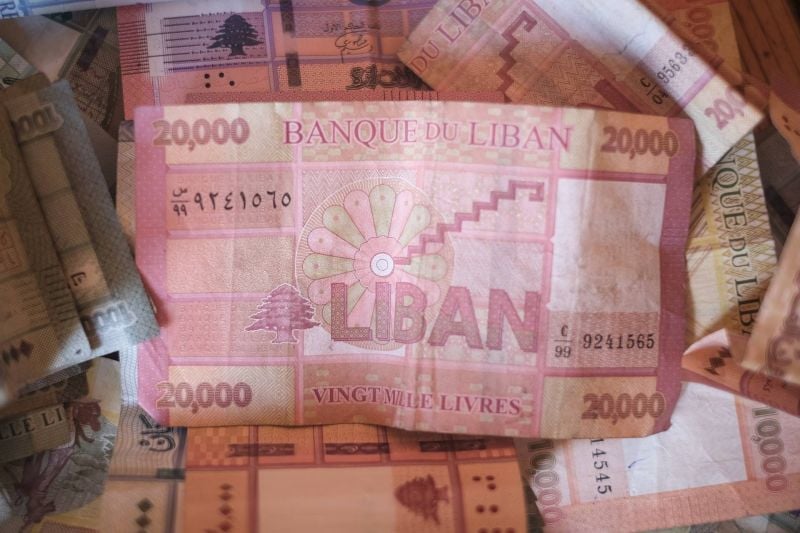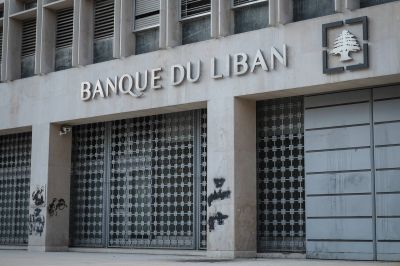
Lebanese lira. (Credit: João Sousa/L'Orient Today/File photo)
• The Policy Initiative (TPI), a Lebanese think tank, estimated millions of dollars in losses to the country’s economy as a result of the war since October.
The think tank anticipated an initial loss of earnings of $450 million due to a 23 percent drop in the number of visitors expected in Lebanon between Oct. 23, 2023 and the end of Feb. 2024. The Policy Initiative also expected a drop in local and foreign investment, which could reach $105 million.
They further discussed three scenarios:
1. If the war were to end now, TPI estimates that Lebanon would already have lost around $550 million, including in tourism and investments.
2. What if the war drags on without any significant increase in intensity? In this scenario, TPI expected the loss of earnings to reach $1.35 billion for tourism revenues and $210 million for investments between October 2023 and September 2024 — that is, a total of around $1.56 billion.
3. In the event of "total war,” TPI estimated losses of up to $7.7 billion over the current year, more than half of which ($4 billion) would be due to a roughly 90 percent drop in the number of visitors.
• The Board of Directors of the World Bank announced on Feb. 15 that it had approved a $34 million project intended to help "restore public services” in Lebanon and “lay the foundations for a sustainable economic recovery.” according to the organization’s press release.
The package consists largely of a $28.5 million loan granted on preferential terms by the International Bank for Reconstruction and Development (IBRD), an organization linked to the World Bank. Added to this is a $5.5 million grant from the Lebanon Financing Facility, the "multi-donor trust fund" created in December 2020 in the wake of the Aug. 4 Beirut port blast.
The funds will be allocated to public institutions and ministries.
The breakdown of funds will be as follows:
• $14.1 million to finance IT and telecommunications equipment (hardware, software, licenses and maintenance services).
• Of the total envelope, $12.3 million will be earmarked over three years to finance "disbursements linked to performance conditions."
• The remaining $7.6 million will finance investments in green energy and other essential technical assistance and capacity-building activities.
• Caretaker Prime Minister Najib Mikati's acting government plans to increase the exchange rate of the "bank dollar,” also known as the “lollar” from LL15,000 to LL25,000, two banking sources familiar with the matter told L'Orient Today.
Depositors, whose dollar deposits remain blocked as a result of informal and illegal capital controls, will be allowed to withdraw funds at the rate of LL25,000 to the dollar in the coming days. It is not clear when exactly that change will begin.
This plan goes against recent efforts by Banque du Liban (BDL) to create a unified exchange rate.
• The consortium made up of TotalEnergies, Italy's Eni and QatarEnergy failed to sign contracts for the exploration and exploitation of Blocks 8 and 10 of Lebanon's maritime Exclusive Economic Zone (EEZ) on time, and did not request an extension. It did not give a reason for the lack of enthusiasm.
There will be another call for tenders, caretaker Energy Minister Walid Fayyad told L’Orient Today, though it is unclear when.
